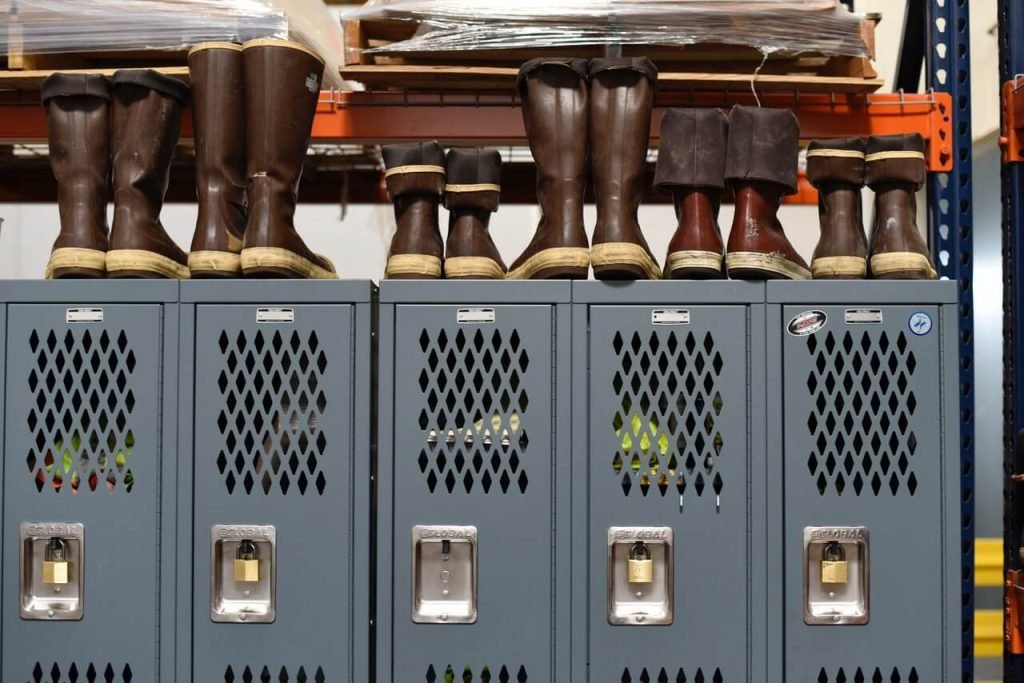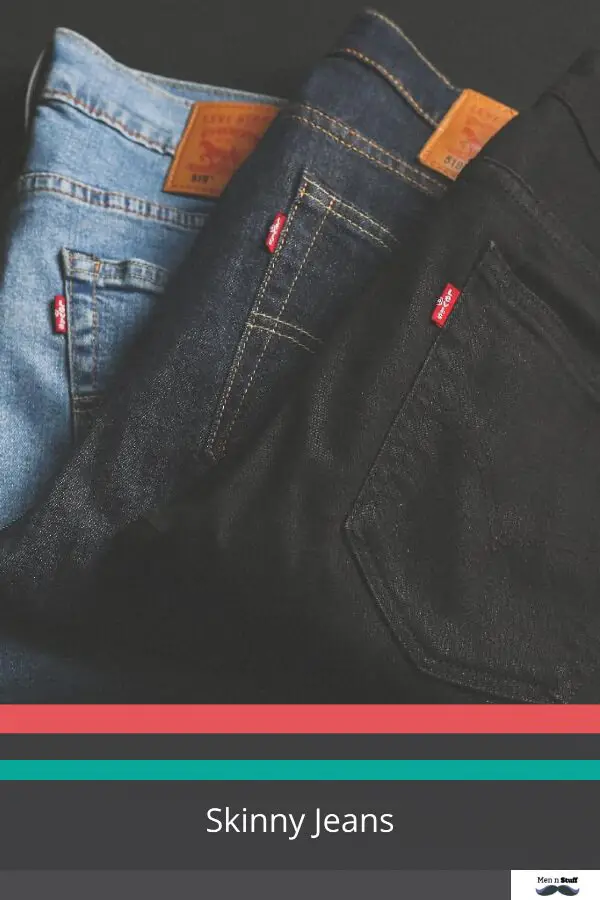Fashion merchandising can be a good major for those passionate about the fashion industry. It offers diverse career opportunities, with a median annual wage of $65,810 for fashion designers. However, success often depends on networking, creativity, and market trend awareness.
Is Fashion Merchandising A Good Major?
The field of fashion merchandising is one of the most vibrant, diverse, and rewarding fields for a career aspirant. It’s a specialized discipline in the fashion world, combining the business and creative aspects while offering an opportunity to make a mark in the fashion industry. Here are the top reasons that make fashion merchandising a good major for a student:
1. Inclusive Curriculum:
The fashion merchandising curriculum broadens the students’ perspective by covering a mix of fashion design, business fundamentals, marketing strategies, and retail management. This inclusive curriculum prepares students for various job roles within the fashion industry and beyond, making it a good major for versatile career opportunities.
2. Lucrative Career Opportunities:
Studying fashion merchandising opens up a wide array of career paths. Graduates can venture into roles like fashion buyer, visual merchandiser, fashion stylist, retail manager, or even fashion market analyst, among others. These positions are not only intellectually stimulating but also generally offer competitive salary packages, enhancing its appeal as a major.
3. Creative and Dynamic Field:
Unlike traditional desk jobs, a role in fashion merchandising demands creativity, innovation, trend forecasting, and much more. The industry’s dynamic nature ensures a stimulating work environment that constantly achieves personal growth and job satisfaction.
4. Networking Opportunities:
Pursuing a major in fashion merchandising comes with immense networking opportunities. From fashion shows, and trade fairs to fashion weeks, students get to connect with industry influencers, designers, and potential employers, helping to establish themselves in the industry.
5. Global Scope:
A degree in fashion merchandising is recognized and valued globally, giving graduates a chance to work anywhere around the world. It offers numerous opportunities to travel, discover new fashion trends, and work on international projects.
| Mode of Study | Career Opportunities | Scope |
|---|---|---|
| Fashion Merchandising | Fashion Buyer, Visual Merchandiser, Fashion Stylist, Retail Manager, Fashion Market Analyst | Global Market, International Projects, Travel Opportunities |
In essence, fashion merchandising as a major offers a diverse mix of opportunities. It bridges the gap between a creative mind and business acuity, providing the ticket to enter the fascinating world of fashion. For aspirants with a keen interest in fashion and a knack for business management, fashion merchandising is indeed a good major.
What Is Fashion Merchandising?

Fashion merchandisers work with designers on pricing new merchandise items to fit various budgets. They also assist buyers by purchasing stock from suppliers they have deals with at competitive prices. In addition to these duties some fashion merchandisers take on, they are also in charge of maintaining and organizing inventory for retail stores.
What Kind Of Jobs Can You Get With A Fashion Merchandising Degree?
A degree in fashion merchandising can open up a variety of career opportunities in the fashion and retail industry. Here are some common jobs you can pursue:
- Fashion Buyer: Buyers are responsible for selecting and purchasing clothing and accessories for retail stores. They analyze market trends, negotiate with suppliers, and make purchasing decisions to ensure the store’s inventory meets customer demands.
- Fashion Merchandiser: Merchandisers work to maximize the profitability of clothing and accessory collections. They plan and develop strategies for product presentation, pricing, and promotion to attract and retain customers.
- Visual Merchandiser: Visual merchandisers create eye-catching displays in retail stores to enhance the visual appeal of products and boost sales. They use their creativity to arrange merchandise and design store layouts.
- Fashion Stylist: Stylists work with individuals or for magazines, brands, or retailers to create appealing outfits and looks. They use their knowledge of fashion trends to curate clothing and accessories for clients or photo shoots.
- Retail Manager: Retail managers oversee the day-to-day operations of fashion stores. They manage staff, handle customer service, monitor inventory, and ensure the store meets its sales goals and targets.
- Fashion Marketing Specialist: Marketing specialists focus on promoting fashion brands and products. They develop marketing campaigns, manage social media accounts, and analyze consumer behavior to drive sales and brand awareness.
- Fashion Public Relations Specialist: PR specialists manage a brand’s public image and reputation. They create and maintain relationships with media outlets, organize events, and handle crisis communication to enhance brand visibility.
- Fashion Event Coordinator: Event coordinators plan and manage fashion-related events, such as runway shows, product launches, and fashion expos. They handle logistics, budgeting, and coordination to ensure the events run smoothly.
- Fashion Entrepreneur: With a strong foundation in fashion merchandising, you can start your own fashion-related business, such as a boutique, online store, or fashion consulting firm.
- Product Developer: Product developers work with designers and manufacturers to bring fashion products to life. They ensure that clothing and accessories meet quality standards, are cost-effective to produce, and align with market trends.
- Textile Analyst: Textile analysts examine and test textiles and fabrics for quality, durability, and performance. They may work for fashion brands, textile manufacturers, or quality control agencies.
- Fashion Educator: With additional qualifications, you can become a fashion educator or instructor, teaching courses in fashion merchandising, marketing, or design at educational institutions.
- Trend Analyst: Trend analysts research and forecast fashion trends, helping brands make informed decisions about their product lines and marketing strategies.
- Fashion Consultant: Fashion consultants offer expert advice to individuals or businesses on fashion-related matters, such as wardrobe styling, personal shopping, or brand strategy.
How Much Do Fashion Merchandising Majors Make?
The salary of fashion merchandising majors can vary widely based on factors such as location, experience, job role, and the specific segment of the fashion industry they work in. Here’s a breakdown of some typical salary ranges for various careers in fashion merchandising:
- Fashion Buyer: Buyers can earn salaries ranging from $40,000 to $100,000 or more annually. Entry-level buyers typically start at the lower end of the scale and can expect their salaries to increase with experience and responsibility.
- Fashion Merchandiser: The salary for fashion merchandisers can vary widely. Entry-level positions may pay around $30,000 to $50,000 per year, while experienced merchandisers in management roles may earn upwards of $80,000 or more annually.
- Visual Merchandiser: Visual merchandisers often earn between $30,000 and $60,000 per year, with salaries varying depending on the size and prestige of the retailer and the level of creativity and experience of the individual.
- Fashion Stylist: Stylist salaries can vary greatly, ranging from $25,000 to well over $100,000 per year. Freelance stylists may charge per project or per hour, which can significantly impact their annual income.
- Retail Manager: Retail managers can earn salaries ranging from $40,000 to $100,000 or more, depending on the size and location of the store, as well as their level of experience and responsibility.
- Fashion Marketing Specialist: Marketing specialists in the fashion industry can earn salaries between $40,000 and $90,000 or more. Salaries often depend on the specific role, the company’s size, and the location.
- Fashion Public Relations Specialist: PR specialists in fashion may earn salaries ranging from $40,000 to $90,000 or higher, depending on their experience and the prestige of the brand or agency they work for.
- Fashion Event Coordinator: Event coordinators in the fashion industry can earn salaries from $30,000 to $70,000 or more, depending on the complexity and scale of the events they manage.
- Fashion Entrepreneur: Income for fashion entrepreneurs can vary significantly, as it depends on the success of their business. Some fashion entrepreneurs may earn relatively modest incomes initially, while others may achieve substantial profits.
- Product Developer: Product developers’ salaries typically range from $40,000 to $80,000 or more, depending on their experience and the complexity of the products they work on.
- Textile Analyst: Textile analysts may earn salaries between $40,000 and $80,000, depending on their expertise and the industry they work in.
- Fashion Consultant: Fashion consultants often charge fees per project or on an hourly basis. Their annual income can vary widely based on the number and scale of projects they take on.
Is Fashion Merchandising Major Hard?
The difficulty of a fashion merchandising major can vary from person to person and depends on various factors. Here are some considerations:
- Interest and Passion: If you have a genuine interest in fashion and the fashion industry, you may find the coursework more engaging and less challenging. Passion can motivate you to overcome difficulties.
- Coursework: Fashion merchandising programs typically include courses in fashion history, retail management, marketing, and visual merchandising. The complexity of these courses can vary. Some students may find them challenging, while others may excel.
- Skills and Background: Your prior knowledge and skills can influence how challenging the major is for you. If you have a strong background in areas like business, marketing, or design, you may find related courses more manageable.
- Practical Experience: Many fashion merchandising programs incorporate hands-on experiences, such as internships or projects. These practical experiences can enhance your understanding of the industry but may also require effort and dedication.
- Time Management: Balancing coursework, projects, and potentially part-time jobs or internships can be demanding. Effective time management is crucial to succeed in a fashion merchandising major.
- Creativity: Some aspects of fashion, like visual merchandising and styling, require creative thinking. If you’re naturally creative, you may find these aspects enjoyable but still challenging in terms of execution.
- Industry Competition: The fashion industry is highly competitive. While your major itself may not be exceptionally difficult, the competition for jobs and career advancement in fashion can be intense, requiring dedication and persistence.
What Does A Fashion Merchandiser Do?
“A fashion merchandiser is responsible for pricing, purchasing, and displaying clothes in the showroom or at a boutique. Fashion merchandisers also need to be up on trends so they know what styles are popular.”
A merchandiser is also responsible for planning the displays of clothes in stores and making sure there is enough room to show all products as well as maintaining current items on store shelves so they are easy to find, but it is important that they do not overcrowd a display with too many articles so potential customers can see every item available. They will continuously update their plan according to fashion trends or department changes such as when sales clerks need more space for jewelry due to an increase in demand over time.”
Do Fashion Buyers Travel A Lot?
“Fashion buyers travel a lot for their jobs and often have to be in the office or showroom during business hours.”
What Are The Highest Paying Fashion Jobs?
“Fashion buyers are the highest-paid within this field. The top-earning fashion job is that of a Fashion Director at an international company. Although they do not work with purchasing, they oversee all aspects of designing clothes for each season.”
The duties of a merchandiser vary depending on their position in the industry or what retail store or boutique they are employed by. A buyer is typically responsible for pricing and purchasing clothing lines to be displayed in stores while keeping them up-to-date with trends so potential customers will want to buy from those stores rather than competitors. They also have knowledge about how much items should cost based on demand and production costs which is important when negotiating prices between suppliers and retailers as well as determining whether or not they should buy new merchandise from a supplier.
What Is A Fashion Merchandising Major?
A fashion merchandising major is a program that teaches students how to find and purchase clothing lines, as well as manage inventory for retail stores. A degree in this field can help you land jobs with companies like Bloomingdale or Macy’s while providing valuable skills such as negotiations and analytical thinking which are helpful in any industry.
Examples of occupations within the sector include buyer, designer assistant, marketer, fulfilment specialist, store manager, and more!
Does Fashion Merchandising Involve Math?
No, it is a humanities-focused major and does not require any math courses.
The degree focuses more on business administration skills such as management of inventory or stocks for retail stores. You will also learn about the history of fashion to better understand what trends you should follow in your work.
Fashion merchandising students have many opportunities after graduation: they may become buyers for department store chains; design assistants at an advertising agency; marketers for clothing manufacturers or distributors; fulfilment specialists within retail distribution systems; and more!
How Do I Start A Fashion Merchandising Career?
After you graduate from college, it is important to find an internship at a fashion-related company in your area. This can be any company that sells clothes or gives advice on what to buy. You will work as part of the team and this experience will show potential employers that you are capable of working hard for them too!
You may also want to get involved with student chapters of professional organizations such as Fashion Group International (FGI) where you can join committees and volunteer opportunities within the organization’s community which might lead to paid employment down the road.
If after graduation, you decide not to pursue becoming a fashion merchandiser then these experiences will help shape other careers like event planning or marketing positions.
What Are The Five R’s Of Merchandising?
The five R’s are the steps of retail merchandising which is typically what fashion merchandisers do in their day-to-day work. The five R’s include research, right product, right place, right price, and promotion.
The research includes analyzing consumer trends to determine what products will be popular or not at different times of the year and for various demographics. Fashion marketers also monitor social media channels like Twitter where customers often vent about companies they’ve been disappointed with in the past–this is useful information that can help you make sure future issues don’t happen again! After all this planning, it’ll come time to decide on a final assortment that best suits your store(s).
What Skills Do You Need To Be A Fashion Merchandiser?
The skills needed are analytical, business-minded, and creative. They need to be able to think creatively about what would appeal to customers the most and then execute that plan well through promotions or pricing changes as necessary. Fashion merchandisers also must have a strong understanding of the manufacturing process, which is an important part of sourcing products for your store(s).
A degree in fashion merchandising will give you the theoretical knowledge you’ll need–but make sure it’s from a top school so that you’re getting hands-on experience too! The Bureau of Labor Statistics predicts employment growth in this job field at 16% during the period 2012-2022 due to popular interest in buying clothes online instead of shopping offline. It’s safe to say that a degree in fashion merchandising is on the rise!
References:
https://bestaccreditedcolleges.org/articles/careers-and-education/is-a-career-in-fashion-merchandising-a-good-choice.html
https://www.bestcolleges.com/business/how-to-become-fashion-merchandiser/

